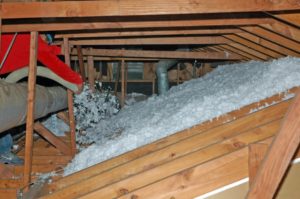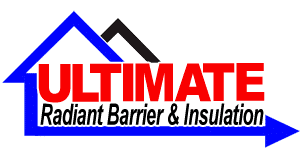When it comes to insulating your home, choosing the right type of insulation is crucial. Two popular options that homeowners often consider are spray foam insulation and traditional insulation. Each has its own set of advantages and considerations. In this article, we will compare spray foam insulation and traditional insulation to help you determine which option is best suited for your home.
- Understanding Spray Foam Insulation:
Spray foam insulation is a cutting-edge insulation solution that offers exceptional performance and energy efficiency. It is composed of a mixture of polyurethane and isocyanate, which when combined, creates an expanding foam substance. The foam expands and adheres to surfaces, sealing gaps, cracks, and voids, thereby creating an airtight barrier.

- Exploring Traditional Insulation:
Traditional insulation refers to insulation materials such as fiberglass batts, cellulose, or mineral wool. These materials are typically installed in the form of rolls, batts, or loose-fill. Traditional insulation works by trapping air in tiny pockets, slowing down heat transfer through conduction and convection.
- Energy Efficiency:
Spray Foam Insulation: One of the notable benefits of spray foam insulation is its exceptional energy efficiency. Due to its airtight seal, it prevents air leakage and reduces heat transfer, resulting in significant energy savings. Spray foam insulation creates a continuous insulation layer that helps maintain consistent indoor temperatures and reduces the strain on heating and cooling systems.
Traditional Insulation: Traditional insulation also provides a certain level of energy efficiency, but it may be more prone to air leakage if not properly installed. Insulation gaps or poorly fitted batts can compromise the overall effectiveness and thermal performance of traditional insulation.
- Air Sealing and Moisture Control:
Spray Foam Insulation: One of the standout features of spray foam insulation is its ability to act as both insulation and an air barrier. The expanding foam fills and seals gaps, cracks, and hard-to-reach areas, preventing drafts and air infiltration. This airtight seal also helps in moisture control, reducing the risk of mold and mildew growth.
Traditional Insulation: While traditional insulation can provide thermal insulation, it may not offer the same level of air sealing. Air leaks can occur around batts or through gaps in loose-fill insulation, allowing air movement and potential moisture issues if not properly addressed with additional air sealing measures.
- Installation and Versatility:
Spray Foam Insulation: Spray foam insulation requires professional installation due to the precise mixing and application process. Trained installers use specialized equipment to spray the foam onto surfaces, ensuring proper coverage and adhesion. Spray foam insulation can be applied to various surfaces, including walls, ceilings, and even irregularly shaped areas, providing versatility in its application.
Traditional Insulation: Traditional insulation can be installed as a DIY project or by professionals. It is available in pre-cut batts or rolls, making it easier to handle and install in standard-sized spaces. However, it may be more challenging to fit and install in areas with obstacles or irregularities.
- Cost Considerations:
Spray Foam Insulation: Spray foam insulation generally has a higher upfront cost compared to traditional insulation. However, the long-term energy savings and increased home comfort it provides can offset the initial investment over time.
Traditional Insulation: Traditional insulation tends to have a lower initial cost, making it a more budget-friendly option. However, its effectiveness and energy-saving potential may be impacted by installation quality and potential air leakage issues.
- Conclusion:
Choosing between spray foam insulation and traditional insulation depends on various factors, including your budget, energy efficiency goals, and home’s specific needs. Spray foam insulation offers superior energy efficiency, air sealing capabilities, and versatility, but comes with

